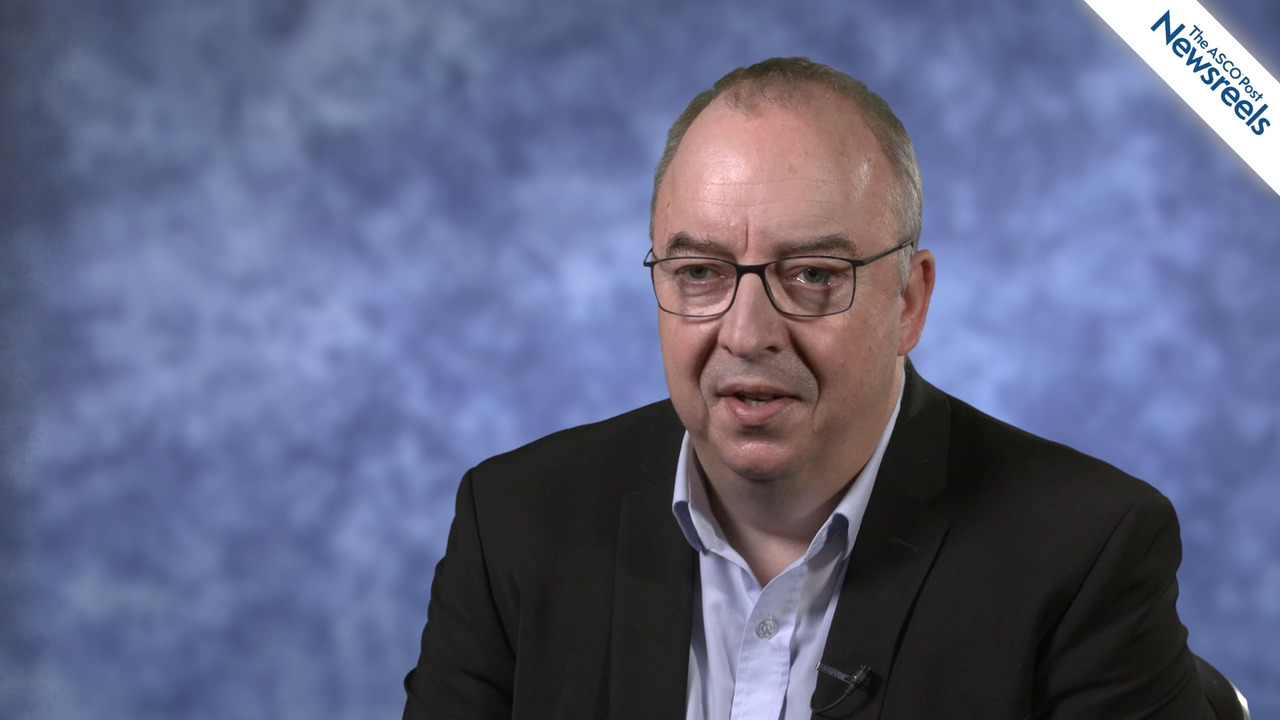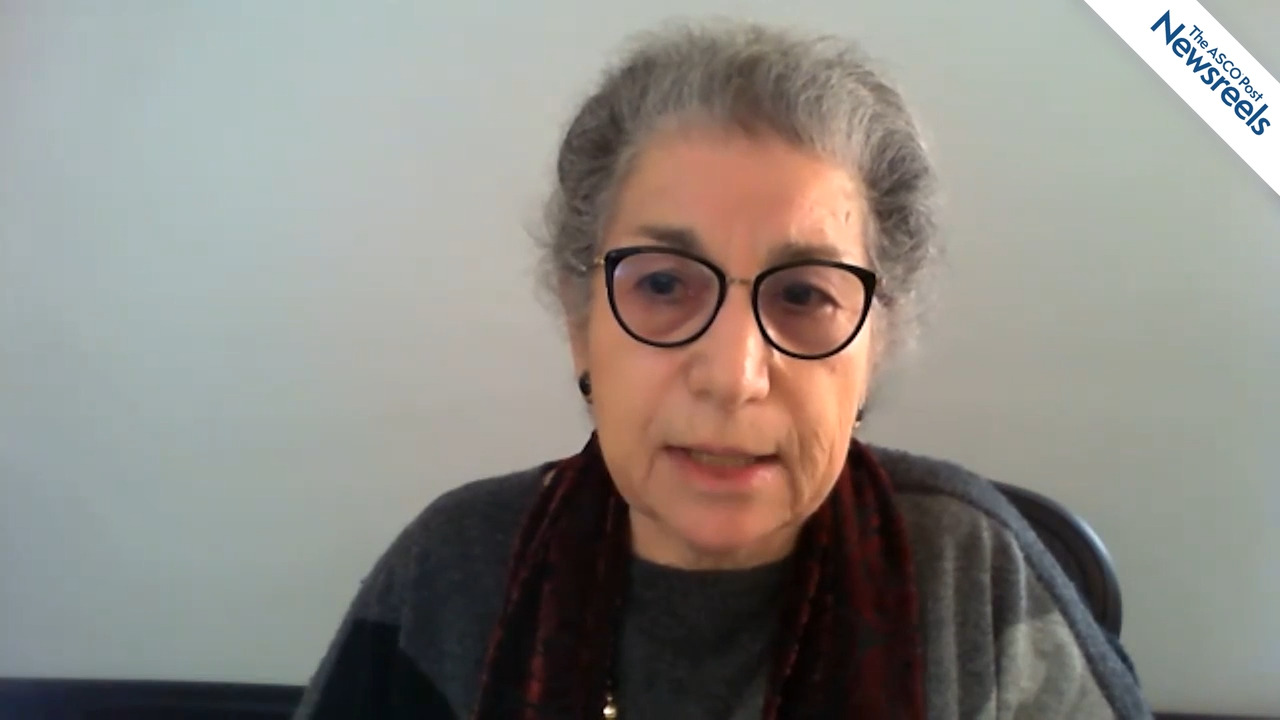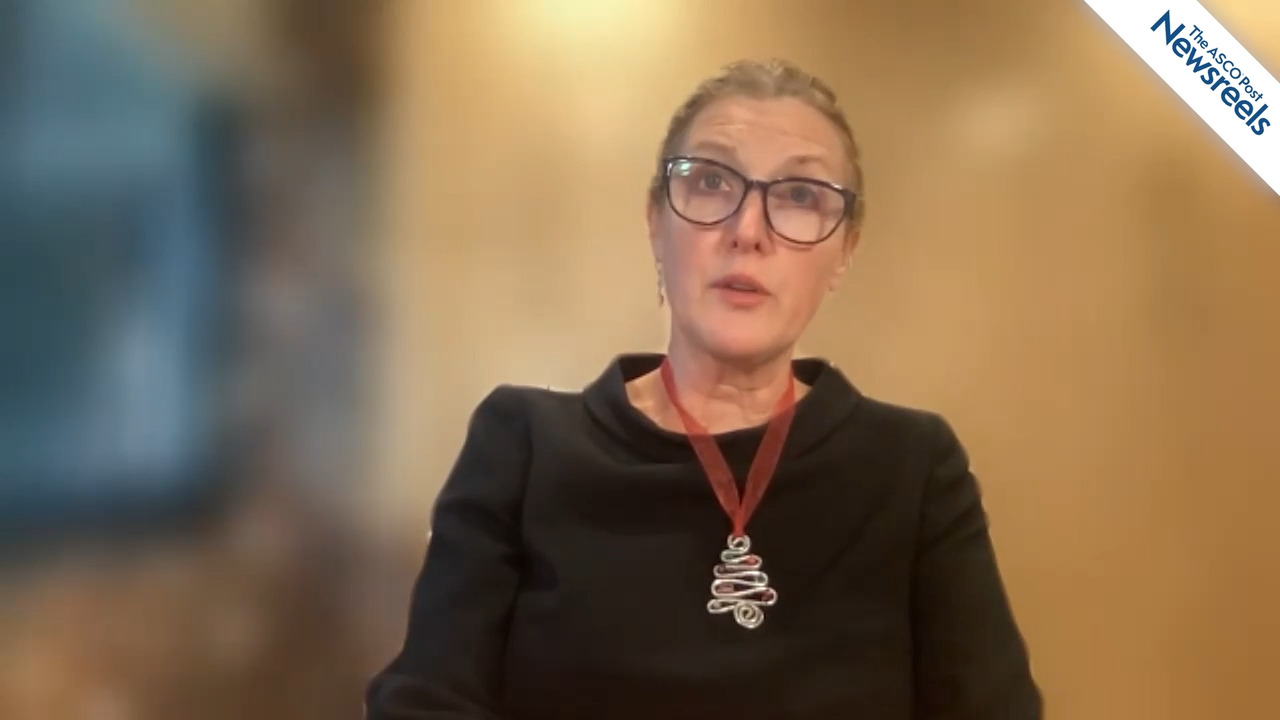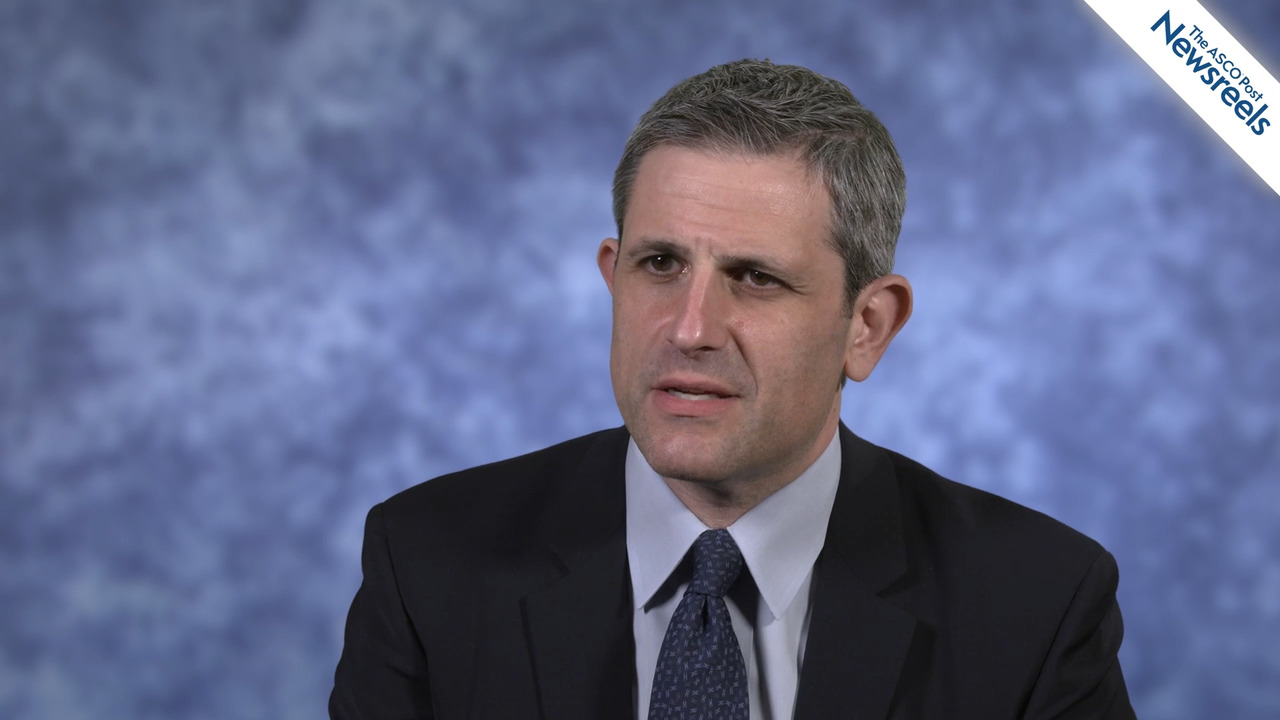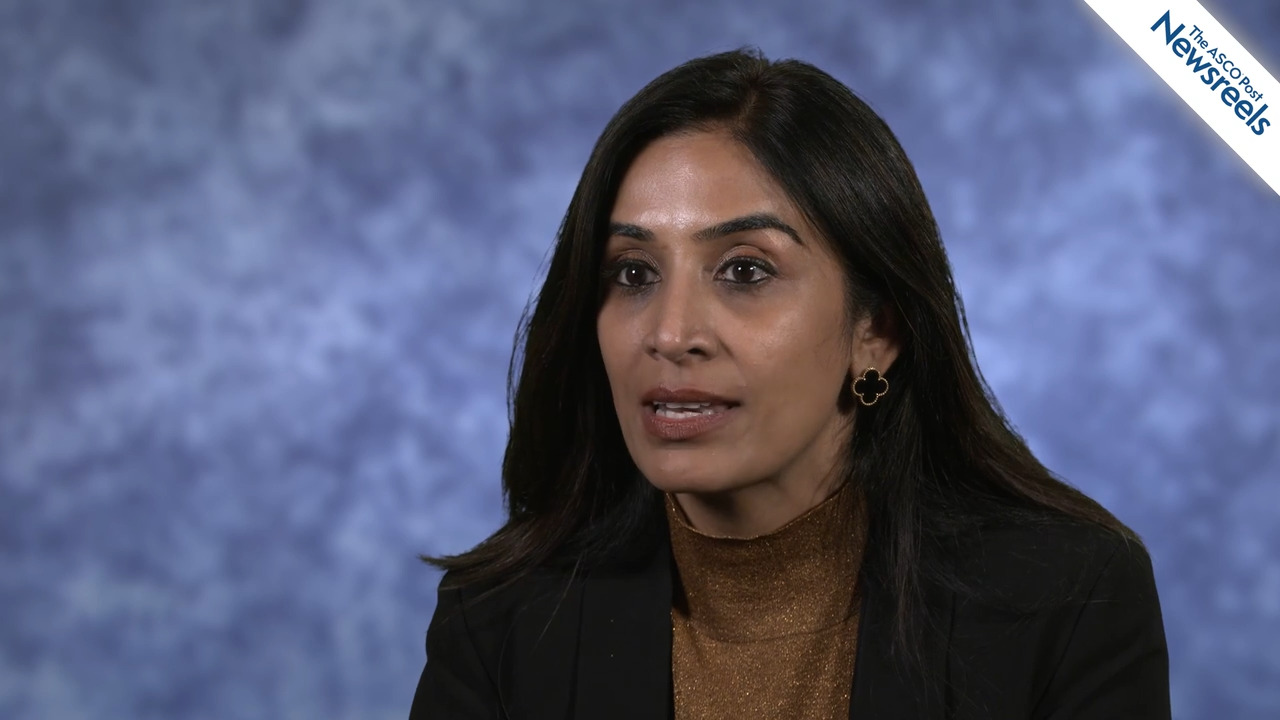Javier Cortés, MD, PhD, on Previously Untreated Triple-Negative Breast Cancer: Pembrolizumab Plus Chemotherapy
2021 San Antonio Breast Cancer Symposium
Javier Cortés, MD, PhD, of the International Breast Cancer Center, discusses the final phase III results of KEYNOTE-355, which showed that pembrolizumab and chemotherapy improved overall and progression-free survival, compared with placebo and chemotherapy, for patients with previously untreated, locally recurrent, inoperable or metastatic triple-negative breast cancer (Abstract GS1-02 ).
The ASCO Post Staff
Michael Gnant, MD, of the Medical University of Vienna, discusses phase III findings from the PALLAS study, which showed that adding 2 years of palbociclib to ongoing adjuvant endocrine therapy did not improve survival for patients with stage II to III hormone receptor–positive, HER2-negative early breast cancer. Dr. Gnant also talks about whether any correlative studies hint at patient subgroups that this regimen may benefit (Abstract GS1-07) .
The ASCO Post Staff
Patricia A. Ganz, MD, of the University of California, Los Angeles, discusses quality-of-life results from the phase III OlympiA study of adjuvant olaparib after (neo)adjuvant chemotherapy in patients with germline BRCA1/2 mutations and high-risk HER2-negative early breast cancer (Abstract GS4-09).
The ASCO Post Staff
Lisa A. Carey, MD, of the University of North Carolina at Chapel Hill and the Lineberger Comprehensive Cancer Center, discusses findings from a pooled analysis of the MONALEESA-2, -3, and -7 trials. Among the findings was a consistent overall survival benefit with ribociclib plus endocrine therapy for patients with luminal A, luminal B, and HER2E breast cancer subtypes. Patients with the basal-like subtype did not derive a benefit from ribociclib, but the sample size was small (Abstract GS1-04).
The ASCO Post Staff
Kevin Kalinsky, MD, of the Winship Cancer Institute at Emory University, discusses updated phase III results from the SWOG S1007 (RxPONDER) study of women with one to three positive lymph nodes, and hormone receptor–positive, HER2-negative breast cancer. The data showed that postmenopausal women with recurrence scores (RS) from 0 to 25 continue not to benefit from adjuvant chemotherapy, whereas premenopausal women with a RS from 0 to 25 did benefit from the addition of chemotherapy to endocrine therapy (Abstract GS2-07).
The ASCO Post Staff
Komal Jhaveri, MD, of Memorial Sloan Kettering Cancer Center, discusses the latest updates from the SUMMIT trial, which explored the combinations of neratinib/fulvestrant/trastuzumab and neratinib plus trastuzumab, as well as fulvestrant alone. The combination regimens appeared to benefit patients with hormone–receptor positive, HER2-mutated metastatic breast cancer who have had prior exposure to CDK4/6 inhibitors, and those with HER2-mutated triple-negative disease (Abstract GS4-10).
